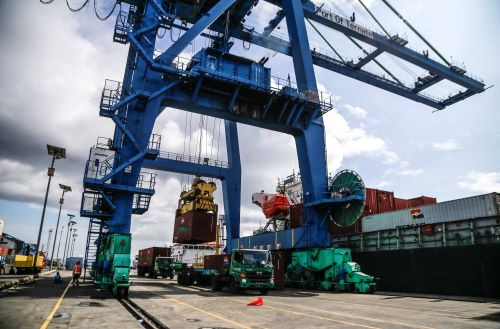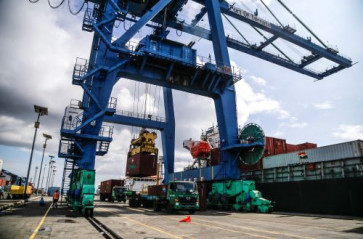Popular Reads
Top Results
Can't find what you're looking for?
View all search resultsPopular Reads
Top Results
Can't find what you're looking for?
View all search resultsHow a second Trump presidency will impact Indonesia’s economy
The possibility of heightened tariffs, a GSP review and a push toward US supply chain reshoring could disrupt trade relations, reduce investment and require Indonesia to adapt diplomatically and economically.
Change text size
Gift Premium Articles
to Anyone
W
ith Donald Trump returning to the White House, we are likely to witness a renewed focus on the "America First" policy, which emphasizes reshoring jobs, reducing trade deficits and tightening immigration policies.
Such a stance holds significant implications for emerging economies like Indonesia’s. Here, we explore the anticipated impacts of Trump’s possible economic policies on the Indonesian economy from 2024 to 2029, specifically in relation to tariffs and trade deficits, the Generalized System of Preferences (GSP), global supply chain reorientation and foreign direct investment (FDI).
First are tariffs and trade deficits. During his previous term, Trump employed aggressive tariffs to reduce the United States trade deficit, particularly targeting imports from China. In his current term, he has expressed the intention of imposing tariffs as high as 60 percent on Chinese imports (and up to 200 percent on electric vehicles), with potential 10-20 percent tariffs on imports from other countries. Such measures could have both direct and indirect repercussions for Indonesia.
Directly, Indonesia stands as one of the US' largest Southeast Asian trading partners after Vietnam, exporting products such as palm oil, electronic components, machinery, textiles, footwear, tires and rubber. In 2023, Indonesia’s exports to the US were valued at US$23.3 billion, largely comprised of inputs and raw materials for US production.
Increased tariffs on ASEAN countries would raise costs for these products, making Indonesian goods more expensive for US producers and consumers, which could ultimately erode US manufacturing competitiveness and contribute to inflationary pressures.
Indirectly, any escalation of the US-China trade war, which has extended to encompass technology, strategic industries and national security, would have regional implications, particularly for Southeast Asia. Indonesia, integrated within East Asian supply chains, could be adversely affected if demand decreases for inputs and intermediate goods essential to broader production networks.
Second is the GSP. The GSP program, established in 1976, provides duty-free access to the US market for select goods from developing countries. This preferential treatment benefits Indonesian exports of electronic equipment, travel goods, chemicals, furniture and rubber. In 2023, Indonesia exported $3.56 billion under the GSP.



















